Three essential hiking gear items for disabled adventurers include all-terrain wheelchairs with reinforced frames for conquering uneven trails, lightweight forearm crutches with ergonomic handles for enhanced stability, and specialized carriers like the WCK Pack that support up to 70 pounds. You’ll find these adaptive tools open new exploration possibilities by addressing mobility challenges with durable, adjustable features. Discover how these innovations are transforming previously inaccessible wilderness into your next adventure destination.
Adaptive Mobility Aids for Trail Navigation
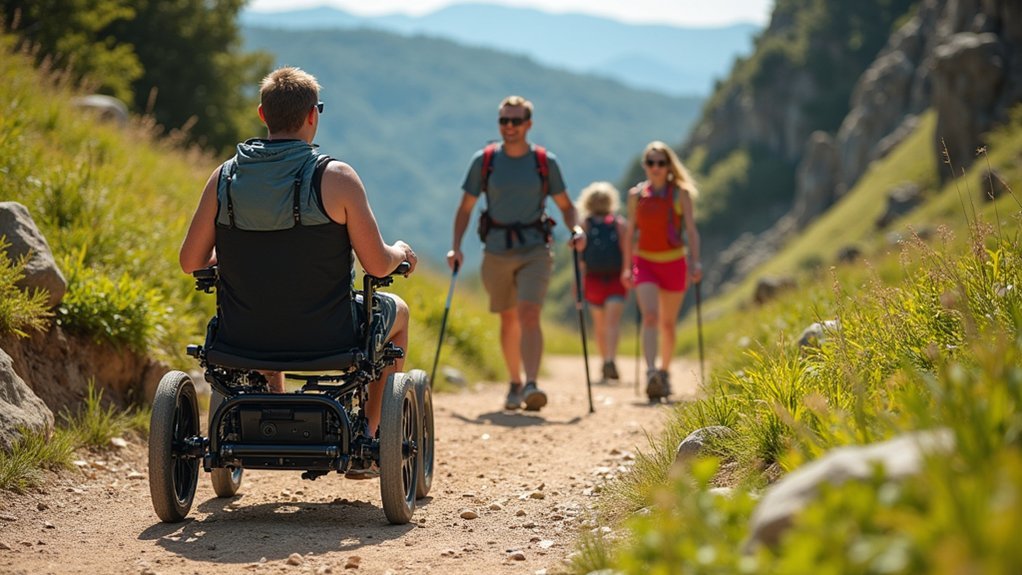
While hiking trails once presented formidable barriers for disabled adventurers, today’s adaptive mobility equipment has revolutionized outdoor accessibility.
All-terrain wheelchairs with reinforced frames and specialized tires can tackle uneven surfaces that standard models can’t handle, opening up new possibilities for exploration.
You’ll find forearm crutches with ergonomic handles and shock-absorbing features provide essential stability when maneuvering through varied terrain.
Many parks now feature accessible paths designed specifically for adaptive mobility aids, ensuring you can enjoy the same views as everyone else.
For those who need different support options, lightweight rollators with large, durable wheels offer stability without excessive weight burden.
Don’t overlook adjustable hiking sticks – these versatile tools enhance balance and guidance across challenging landscapes, giving disabled adventurers greater confidence during outdoor activities.
All-Terrain Seating and Support Systems
Frequently, the difference between impossible and accessible trails comes down to specialized seating and support systems. The WCK Pack by We Carry Kevan offers a robust child carrier that supports up to 70 pounds, allowing caregivers to transport individuals with disabilities across challenging terrain.
For beach and snow adventures, consider VIPAMAT’s Hippocampe wheelchair with its specialized balloon tires, transforming previously inaccessible environments into navigable outdoor settings.
Water enthusiasts will appreciate Creating Ability’s Universal Paddling Seat, featuring six adjustable support points for comfortable support during aquatic activities.
For winter sports, TESSIER’s lightweight Swaik System provides customizable frames for wakeboarding, while the Dynamique Bi Ski delivers tailored shock tuning for smoother rides.
These mobility aids transform hiking gear options, making accessible campsites and trails possible with ergonomic handles and adaptive features.
Specialized Carriers and Accessibility Tools
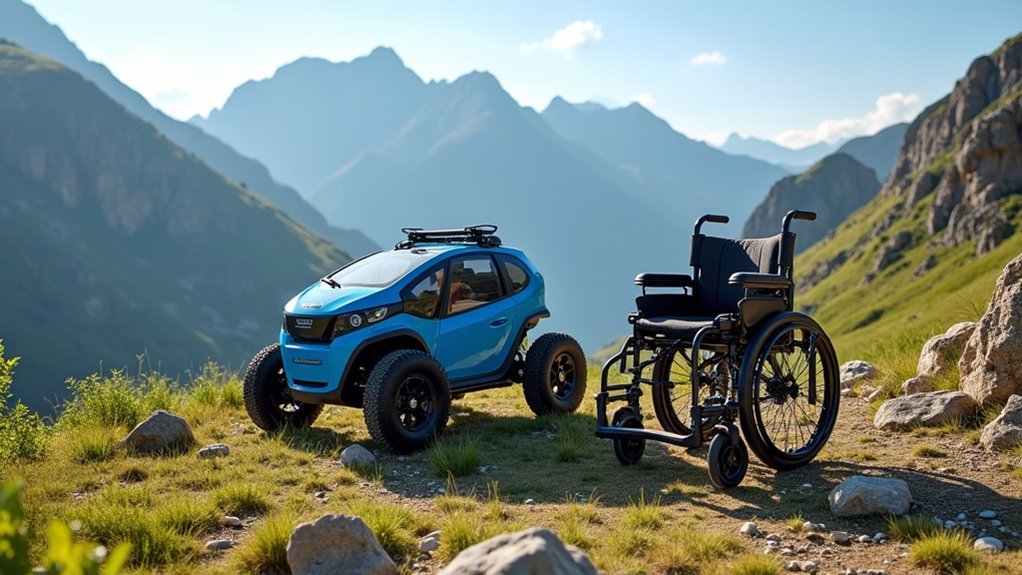
Beyond traditional hiking gear, specialized carriers and accessibility tools have revolutionized outdoor adventures for disabled explorers. The WCK Pack stands out as an exceptional child carrier with a 70-pound capacity, offering adjustable seating and safety harnesses for comfortable trail travel without wheelchairs.
For beach and snow excursions, VIPAMAT’s Hippocampe All-Terrain wheelchair features balloon tires and a lightweight design with removable components for easy transport.
When seeking personalized stability in watercraft, CREATING ABILITY’s Universal Paddling Seat provides customizable support with six adjustable points.
Athletes pursuing more advanced performance can choose the TESSIER Swaik System’s adaptive frame for wakeboarding or the Dynamique Bi Ski for winter sports, complete with Paralympian-approved outriggers for enhanced control on challenging slopes.
Frequently Asked Questions
How to Hike With Mobility Issues?
You’ll find hiking with mobility issues easier when you use forearm crutches, wear supportive boots, choose accessible trails, consider all-terrain wheelchairs, and pack specialized emergency supplies tailored to your needs.
What Does Every Hiker Need?
You’ll need a reliable navigation tool, comfortable backpack, proper footwear, hydration solutions, and an emergency kit. Items like the Garmin inReach Mini 2, Osprey Hikelite 26, and appropriate first aid supplies are essential.
What Is Adaptive Hiking?
Adaptive hiking enables you to enjoy trails despite physical limitations. You’ll use specialized equipment like all-terrain wheelchairs or adaptive poles that provide stability and accessibility, helping you experience nature’s benefits regardless of disability.
What Technical Gear to Bring Hiking?
You’ll need a GPS device like the Garmin Fenix 8, a Sawyer Squeeze water filter, the Nitecore NU25 headlamp, shock-absorbing trekking poles, and an emergency bivvy for safety during your hiking adventures.
In Summary
You’ve now discovered the top adaptive hiking gear designed for your unique needs. Whether you’re traversing rugged terrain with mobility aids, finding comfort in all-terrain seating systems, or utilizing specialized carriers to enhance your adventures, these tools open nature’s wonders to everyone. Don’t let disability limit your exploration—with the right equipment, you’ll conquer trails and create unforgettable outdoor memories on your own terms.


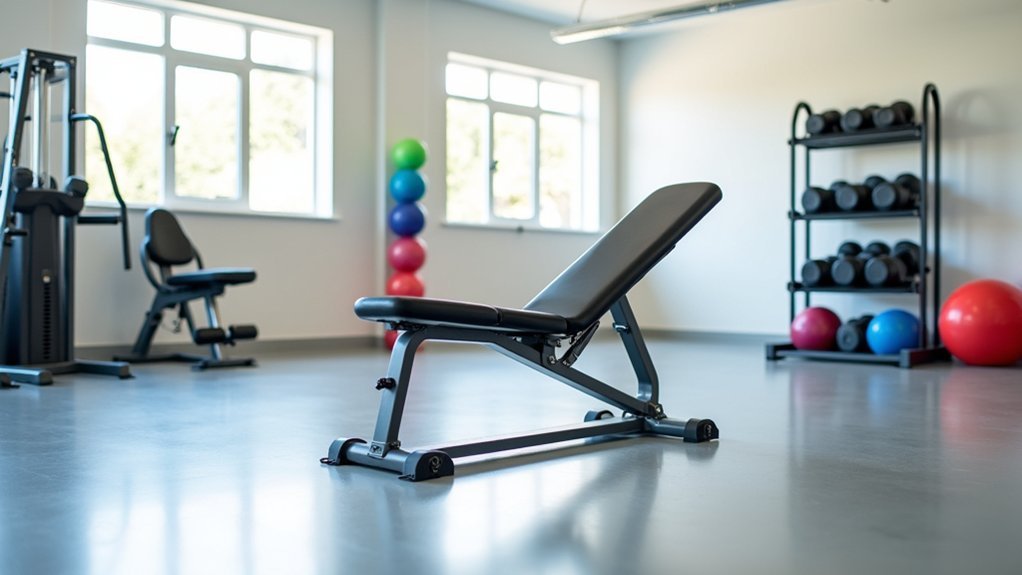
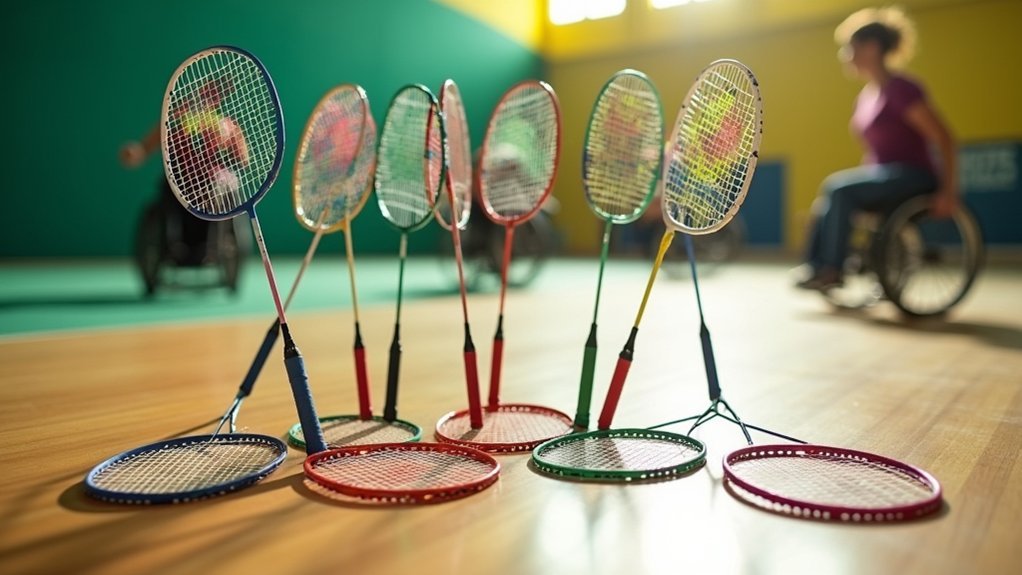
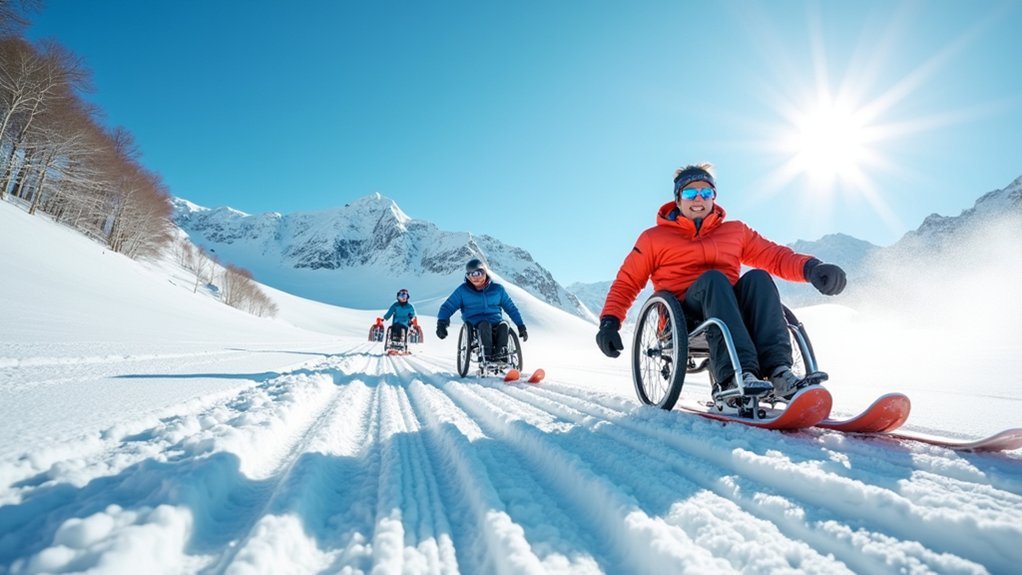
Leave a Reply